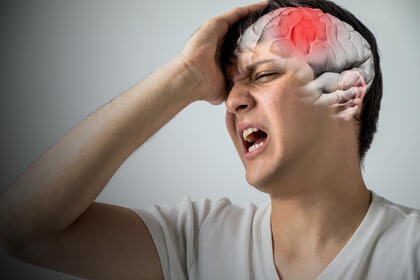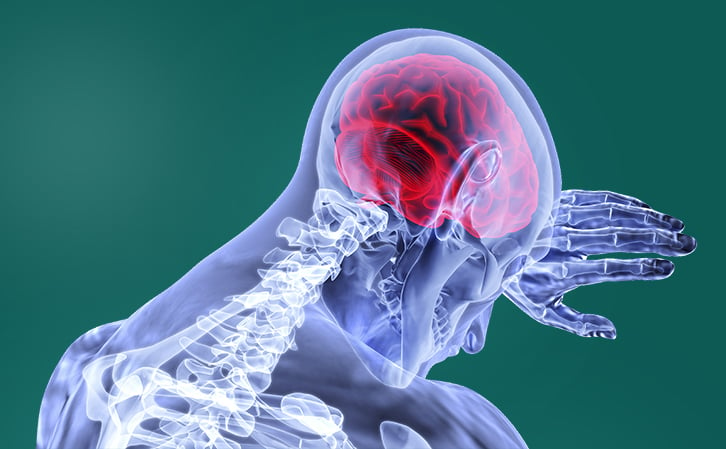A Link Between TBIs and Mental Illness
Did you know that TBI, concussion or other closed head injury survivors are four times more likely to develop a mental illness in the future? Ya, me neither... not until just recently. It's estimated that survivors are 65 percent more likely to develop schizophrenia, 59 percent more likely to develop depression and 28 percent more likely to develop bipolar disorder. Even scarier, people who have sustained a concussion in the past are three times more likely to fall victim to suicide.

Many things came to mind when I started studying and researching this...
How is this possible?
What resources are out there to help individuals find their way through this?
Do these "odds" and statistics just go away after we've recovered?
I soon realized that like most things in this niche, the brain is a complex and messy organ that we know so much and nothing about all at the same time.
Here's what we know:

Mental illness- specifically depression is associated with increased inflammatory markers; indicating in this case that when our brain is inflamed, we may experience both psychical and emotional symptoms of depression.
Mental Illness is not caused by an illness, it results from the body’s immune response to that illness. In the brain's case- when it's put in survival mode, it tries hard to respond to everything wrong from our blow to the head. When this happens, it negates to respond to our emotional well being- Que in mental illness.
How we treat concussions and closed head injuries cannot continue to be elevate, ice and pain killers... We must start looking at all symptoms including cognitive, physical and emotional, because more cases than not in the TBI world, they're probably all related.
if you are a TBI survivor, supporter or care giver take a second look at your care plan. Evaluate your symptoms, see what has healed, what has changed and even what hasn't been treated and go from there. In my own experience I had a Neuro evaluation as well as a Neuro-Psych evaluation done by a neuro-psychologist. I was tested and was put on the spectrum for both Anxiety and Depression. My treatment plan became medications and grief counseling and other such therapies.
What I didn't know up until recently is that I'm not on the Anxiety or Depression spectrum at all. I exhibit symptoms and signs, but my true issue isn't mental illness at all. I have a hormone imbalance. An imbalance caused from a blow to the head and sub-concussions. Something from a TBI. The good news, it's something that is easily be fixed. A blood test and evaluating what I need is what is doing the trick.
For anyone out there going through similar experiences, understand you aren't crazy- not even a little bit. You're just experiencing and exhibiting things that are a apart of your TBI journey.
Interesting articles and sourced information:
https://www.psychologytoday.com/us/blog/the-truisms-wellness/201602/if-depression-were-infection
https://ajp.psychiatryonline.org/doi/full/10.1176/appi.ajp.2013.13020190
https://jneuroinflammation.biomedcentral.com/articles/10.1186/1742-2094-8-94
Stay Updated on Advancements On Traumatic Brain &
Spinal Cord Injuries
About the Author




